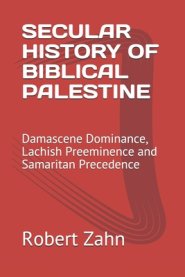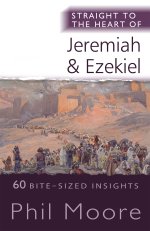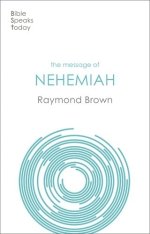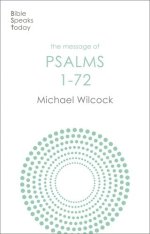The first to interest me in biblical Palestine were the minimalists. Once I read more on the topic, though, it became obvious that many details concerning biblical Palestine within biblical scholarship, including that of the minimalists, were problematic. Some of these details were described by scholars as "amazing," "miraculous," "senseless," "meaningless," "particularly interesting," "difficult to explain," a "most peculiar anomaly" and even "a ghost no one can get hold of." In addition, there are many details within the Bible and related literature that scholarship of all varieties has simply skipped over.
It was a reflex on my part as a puzzler to look for solutions for such problematic details and omissions. In this regard, I feel that for nearly all of the enigmas of biblical scholarship there are very reasonable solutions, most of which have been arrived at within, or can be deduced from, modern archaeology or minimalist and/or modern biblical research. However, these solutions are not amenable to traditional modes of thought and some are even at odds with segments of modern or minimalist schools. The words and phrases of puzzlement above are generally indicative of the wish, and futility, of biblical scholars to force the realities of biblical Palestine to conform to their pious preconceptions.
Hence, though this work is radical, I yet hope it is a quite reasonable and necessary approach to historical details of first millennium BCE Palestine. However radical, this work is not at all sensationalistic: e.g., I do not contend that an uncle of mine was descended from one of the "lost tribes."
Though not at all concerned with religion per se, much of this book is concerned with the use, possession and appropriation of the original traditions within the first seven books of the Bible, i.e., the Heptateuch. First, these ur-traditions were used by the Aramaeans in Damascus as indoctrination of Hebrews in their transformation into "Israelites." This transformation was designed by the Aram-Damascenes to create and incorporate the Kingdom of Israel as a dependent state within Damascene control. Second, these same traditions at first belonged to the Kingdom of Israel and to the Samaritans after the fall of said Kingdom and had nothing to do with pre-exilic Judah, not as person, tribe or kingdom. Third, Samaritanism predated Judaism. It was only in post-exilic times that descendants of the Babylonian exiles decided to appropriate the traditions of the Samaritans. These post-exilic Judahite descendants also took the name "Israel" for themselves and used the appropriated Samaritan traditions as the basis for Second Temple Judaism. This led to the late introduction of Judah-related material into what had previously been a Judah-free ur-Heptateuchal tradition.
On another front, I will support the contention that Lachish, not Jerusalem, was the capital and main city of the city-state of Judah, i.e., Lachish and its immediate surroundings constituted the kingdom of Judah prior to Sennacherib's invasion. Jerusalem had only been a burial center associated with Judah until Sennacherib attacked and destroyed Lachish. This attack caused a frightened Hezekiah and his hangers-on to escape from Lachish and reach protection in Jerusalem, it being considered by a superstitious Sennacherib to be an untouchable, tabooed city of the dead. The David myths, along with the mythical "United Kingdom," were post-Sennacheribean constructs meant to enhance and excuse the disappointing realities of Jerusalem, Judah and Hezekiah, with "David" being the mythical personification/excuse for Hezekiah with his faults.
Though not the intention of this work, the solutions supported within will be difficult to accept for many who are interested in ancient Palestine. Neither happiness nor consolation is to be found in this work. Reality is the only aim.
Trustpilot











